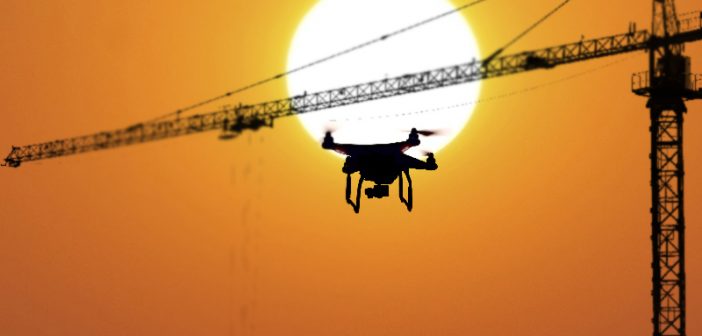Drone technology is beginning to take off in the UK and Irish construction industry, according to a new survey by ProDroneWorx, one of the UK’s leading companies for aerial mapping, inspection and surveying. According to the survey – ‘Drone Technology within the Construction Industry’ – a third of respondents are currently using drone technology, and of those that do not, nearly 70% plan to do so in future.

Ian Tansey
Managing Director
ProDroneWorx
In the first survey of its kind in the UK and Ireland, ProDroneWorx asked senior figures within the construction industry, including surveyors, architects, engineers and construction firms, about their perception, usage and understanding of drone technology. The response to this survey was impressive with over 160 respondents taking part across the UK and Ireland.
ProDroneWorx believes that drone technology will transform traditional business models and help to reshape the construction industry. Indeed, early adopters are already starting to see a positive impact on their operational processes from the way projects are monitored to the inspection of assets.
Ian Tansey, Managing Director at ProDroneWorx, said: “In a world of tight margins and an increasingly competitive landscape, the use of drone technology gives construction firms a significant competitive advantage over their peers through reduced costs, increased productivity gains and the mitigation of risk”.
Key takeaways from the survey:
- A third of respondents (33%) are currently using drone technology in their operations. These early adopters understand the benefits it brings to their organisations
- The majority of respondents (67%) are currently not using drone technology. However, most plan to do so in the future.
- Of the 33% that are currently using drone technology:
– The majority (60%) have been using it for less than a year.
– However, 11% of this sub-group have been using the technology for the last 3 to 5 years making them very early adopters
– The three main reasons firms are using the technology are:
Time savings (49%)
Increased operational efficiency (49%)
Cost savings (47%) - Even though a large percentage (67%) of firms are not currently using drone technology, there’s huge pent-up demand as 77% of this group plan on using the technology in future.
- Only a small proportion of firms have no plans to use the technology in the future.
- Construction firms have two options when it comes to deciding how to incorporate drone technology into their business models and workflow: creating an internal drone unit/function; or using a 3rd party specialist.
– Overall, the vast majority of firms (67%) plan to or currently use 3rd party specialist companies on their projects rather than having an internal drone function within their company.
– Issues such as regulation, licensing, insurance, hardware, software and data processing are factors putting firms off an internal function.
– Many find it easier, cheaper and less risky to use a professional drone solutions company on projects. - Awareness of drone technology and the various benefits it brings is high within the industry; 75% of respondents understand how the technology can be used within their business.
- Although drone technology has many applications within the construction industry, currently its primary use is in photography & video, surveying, asset inspection and progress monitoring.
Respondent Demographics:
161 respondents completed the survey
The majority of respondents (82%) were from England, followed by the Republic of Ireland at 8%; a smaller number were from Scotland (5%) and Wales (3%).
27% of respondents were from the construction sector, 19% Architecture, 18% Surveying, 12% 0ther (Ecology, Agriculture, Consultancy etc) and 7% Engineering.
About ProDroneWorx
ProDroneWorx is one of the UK’s leading companies for aerial mapping, inspection and surveying. As a drone technology specialist, we pride ourselves on our professionalism and commitment to improving operational efficiency, reducing costs, mitigating risk and improving health and safety for our clients through the use of drone technology.





